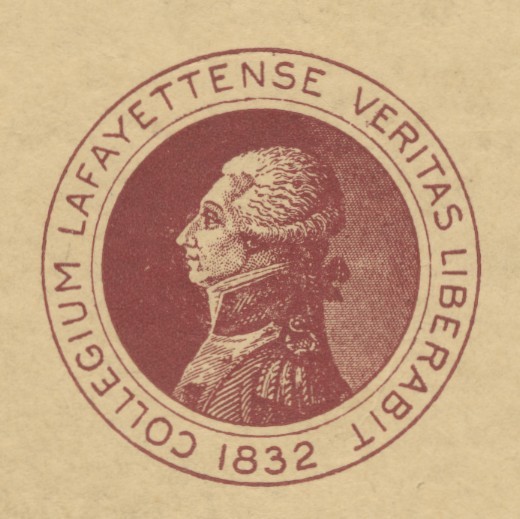Letters Home
Writing letters seems to be a lost art. While in the archives, they constitute an enthralling look into the daily lives and thoughts of Lafayette’s students, faculty, etc. Recently, Special Collections received a new batch of letters from William K. Foster, Lafayette College Class of 1896, to his sister Mary. Foster describes many of the Lafayette social traditions already in place this early in the College’s history–from “socialables” to discussing the superiority of the Lafayette football team.
Looking at these letters raises another issue in my mind, however–How will archivists in the future deal with the loss of the letter as a form of communication and personal expression, and instead transition into the age of technology? Reflecting on my own experiences, I know that by far and large the majority of my communications with others are through either my cell phone (and the ubiquiotous text-messaging) or via email.
Regardless of what you think of the rise of these new technologies (and the resulting dependence on them), these are the new way for individuals to express themselves. But how does one archive a blog? A text? An email? How does one preserve those important (or not so important) communications for posterity?
I was faced with this conundrum at first when receiving letters from the graduate schools I had applied to. Of the six, only 3 sent me “snail mail” to inform me of their decisions. My former roommate experienced a similar derth of paper-based decisions during her own graduate school application process last year. I wondered, as I looked at this emails ostensibly deciding my future–how could I save these? (Yes, I am an archives-minded person in that I think about how documents can be preserved for my personal papers). Do I print out the emails? This seems remarkably unecological in this day in age, and there must be a more efficient way to do so.
My own conundrum, in its minisculity, only mirrors a larger issue facing archives today. In an age where more and more of our lives are based off of a computer, how do we ensure that our past is preserved? And how does one preserve the internet?
The most recent example I have found in trying to address this issue is that of the “National Security Doctrine of 2002”, which was preserved by those at WhiteHouse.gov as a “frozen” page–which essentially means a banner runs at the top of the page, noting that the content will not be changed, and is the same as it was the day it was added to the online world. However, is this enough…?
Leave ideas in the comments!
Sara Walter is the Advanced Archival Assistant. She is a senior, double majoring in History, Government and Law, and Spanish.

Leave a Reply